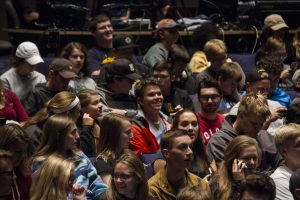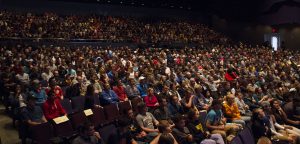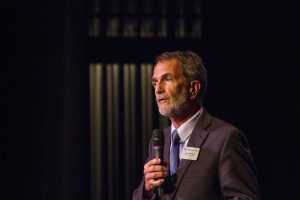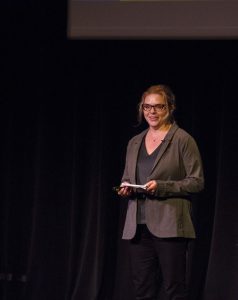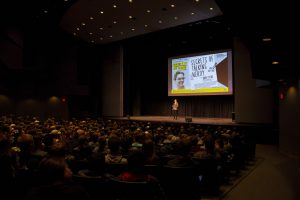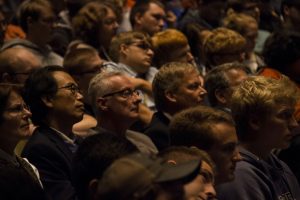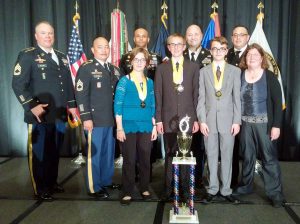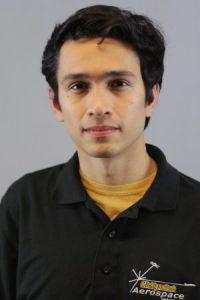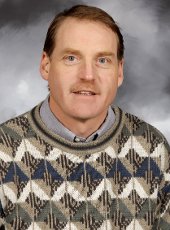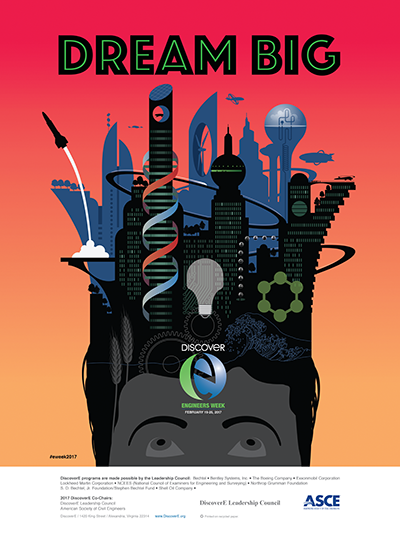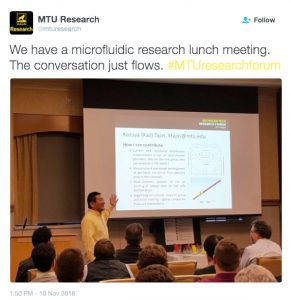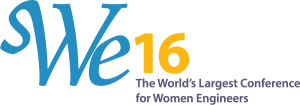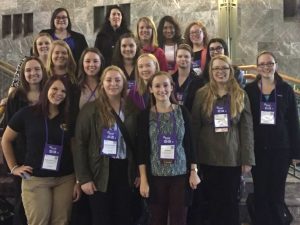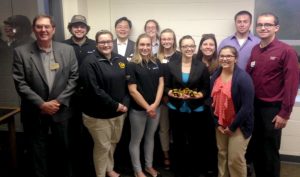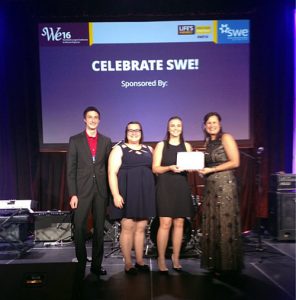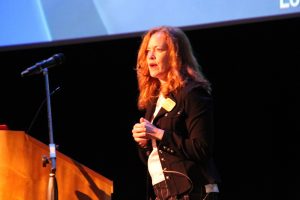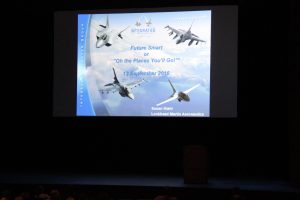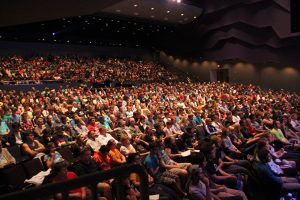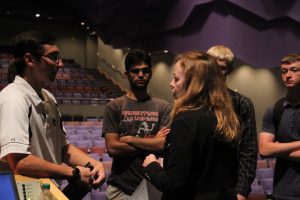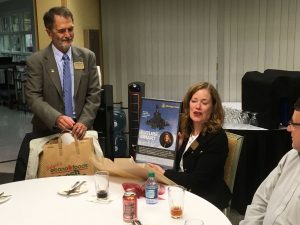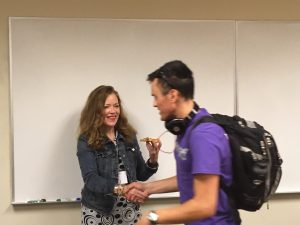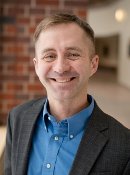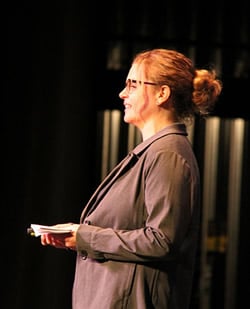
Are you an engineer or a scientist? Then you’re a writer and communicator, too. Libby Titus tells how to be an amazing geek who can also write.
More than 1,200 first-year engineering and computer science students learned the “Secrets of Talking Nerdy” from Michigan Tech Alumna Elizabeth (Libby) Titus ’96 at Michigan Tech’s annual First-Year Engineering Lecture on September 6. Here are some highlights from her talk.
It was 1990. Libby Titus was deciding where to go to college. She knew she wanted to get as far away from home as possible without incurring out-of–state tuition. That put Michigan Tech, a 12-hour drive, into the running. “Also, at the time, the only person in my family who had gone to college was my uncle Bob, and he had gone to Michigan Tech. After graduation, he was happily designing kegerators and brewing craft beer. I like beer, so I chose Michigan Tech,” Titus admits.
It turned out to be a much bigger decision than she realized. Titus met her former husband, the father of her two children, while walking across campus the very first day. She earned two bachelor’s degrees from Michigan Tech in 1996—one in environmental engineering and the other in scientific and technical communication.
After graduation, Titus packed up a U-Haul and headed West, taking a job in Salt Lake City for ASARCO, a mining company. “I was the first entry-level engineer and the only woman in the group. I quickly discovered that my ability to communicate equaled survival,” she recalls.
The job felt like torture. A friend, also an engineer, said to her, “Engineering is the easy part. Dealing with people is the hard part.”
She had read that for her resume to be taken seriously, she needed to stay in her first job for three years. “I made it three years and one day.” That’s when Titus moved to Seattle, where she lives now, to begin a new career as a consultant, helping clients with their environmental, health, and safety (EHS) obligations.
“I feel lucky,” she says. “My work is important, I feel appreciated, and I like my colleagues.” Titus currently manages EHS regulatory compliance for Novo Nordisk, a biopharmaceutical research center founded 9 years ago. Her job is to ensure her group of 120 Seattle researchers–Novo Nordisk has over 6,000 worldwide–meet all its compliance obligations for federal, state, and local EHS regulations and permits. She does a lot of training, and a lot of writing.
I decided to become a licensed professional engineer solely so I could command respect as a writer.”
Professional engineers typically spend at least half of their day communicating, notes Titus. With 20 years of substantive experience now under her belt, she offers important advice for anyone entering the field.
“Engineering and science are group activities. It’s very rare for someone to be by themselves on a project,” she says. “No one wants to work with someone who can’t communicate.”
While at Michigan Tech, Titus took an improv class. “We all formed a circle and had to introduce ourselves and pass around some object made of air. It was pure hell, but it helped me. Take every chance you can get to engage with other people,” urges Titus. “Engineers are known for avoiding opportunities to connect with people. If you are not a confident writer or are afraid of public speaking, more writing and more speaking are the only solutions,” she says. “Confidence comes from practice!”
Adds Titus, “In business, written communication is often more important than what you say verbally. Writing is the greatest engineering challenge of all. It’s amazing how much business effort is wasted to fix poor writing. In one of my previous consulting jobs, we called our product ‘The BHB’, which stands for ‘Big Honking Binder’. The longer it takes to write, the more it costs the client.”
Clients are known to fire engineering consultants who cannot write well. “No matter how smart you are, your great ideas mean nothing until they can be effectively communicated. People will judge you by how well you speak and write.”

